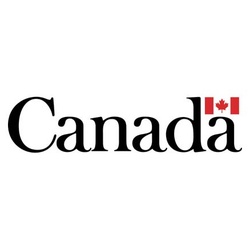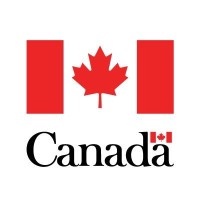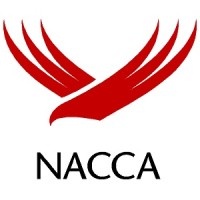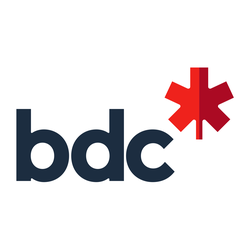
Open
Workplace screening of employees
Last Update: October 27, 2025
Canada
COVID-19 rapid tests for workplace screening of employees
Other Support
At a glance
Funding available
Financing goals
Increasing community impact
Eligible Funding
- No Condition
Timeline
- Open Date : April 13, 2021
Eligible candidates
Eligible Industries
- All industries
Location
- Canada
Legal structures
- Non-profit
- Public or Parapublic institution
- For-profit business
Annual revenue
- All revenue ranges
Organisation size
- All organization sizes
Audience
- Indigenous Peoples
Non-profit candidates
Sector of operation
- All industries
Target groups
- Indigenous peoples
- Business owners / entrepreneurs
- Nonprofits / charities
Revenue structures
- All structures
Scope
- Provincial
- National
Overview
Get free COVID-19 rapid tests to help identify employees who may be infected.
Activities funded
Examples of admissible projects:
$ 5,000
Acquire COVID-19 rapid tests for a community health initiative
$ 5,000
Providing rapid COVID-19 tests to employees at a financial cooperative
$ 4,000
Acquire rapid tests for a sole proprietorship medical clinic
$ 6,000
Distribution of COVID-19 rapid tests for a cooperative business
$ 7,500
Provide rapid tests for a local Indigenous community health initiative
Eligibility
Eligibility for obtaining free COVID-19 rapid tests is determined by specific criteria related to the type of organization and their operational context.
- The applicant must be a business or a non-profit organization.
- The organization must be situated in Canada and seek tests from provincial or territorial governments, or through Health Canada.
- For Indigenous communities and organizations, the priority is to obtain tests through provinces, territories, or an Indigenous health authority.
Who is eligible?
Employers, which include businesses and non-profit organizations, may be eligible for the COVID-19 rapid testing and screening grant to receive free rapid tests provided by provincial or territorial governments in Canada. Additionally, indigenous communities and organizations can apply, specifically if tests cannot be accessed through local sources.Eligible expenses
This initiative provides free rapid COVID-19 tests to businesses and non-profit organizations to ensure workplace safety through regular screening. Eligible activities focus on obtaining and implementing rapid testing procedures for employees.
- Ordering free COVID-19 rapid tests from provincial or territorial governments.
- Requesting rapid test kits from Health Canada.
- Accessing rapid tests through GCDonate for non-profit organizations.
- Indigenous organizations obtaining tests from local Indigenous health authorities.
- Implementing workplace rapid testing protocols to enhance safety during operations.
Eligible geographic areas
This grant is available to businesses and non-profit organizations across Canada, provided they access rapid tests through their provincial or territorial governments or Health Canada.
- Businesses and NPOs in Canada eligible through provincial or territorial programs.
- Entities able to request tests from Health Canada.
- Indigenous communities and organizations within Canada.
How to apply
1
Determine Eligibility
- Verify your business or non-profit organization is eligible for free rapid tests by checking provincial or territorial guidelines.
- Ensure minimum order sizes, if applicable, can be met according to Health Canada's provision conditions.
2
Request Tests from Health Canada
- Draft an inquiry or request email detailing your organization's need for rapid tests.
- Include any relevant information about your organization that supports your request.
- Send your request email to screening.kits-trousse.depistage@hc-sc.gc.ca.
3
Access through Other Channels (if applicable)
- For non-profit organizations, explore alternative access through GCDonate.
- If appropriate, contact local Indigenous health authorities if the organization is Indigenous or operates in an Indigenous community.
4
Collect Tests
- Upon approval, coordinate the collection of rapid tests as instructed by Health Canada or other relevant authority.
- Ensure proper storage and handling as per guidelines provided with the test kits.
Additional information
Here are some additional relevant details for this grant:
- Minimum order sizes may apply when requesting free rapid tests from Health Canada.
- Non-profit organizations can specifically access free tests through the GCDonate platform.
- Indigenous organizations are encouraged to seek rapid tests from local Indigenous health authorities if not available from provincial or territorial sources.
Apply to this program
Frequently Asked Questions about the Workplace screening of employees Program
Here are answers to the most common questions about the Workplace screening of employees. This section explains what the program is, how much funding is available, eligibility requirements, application deadlines, and other important details to help you determine if this grant is right for your business.
What is the Workplace screening of employees?
How much funding can be received?
What expenses are eligible under Workplace screening of employees?
What is the deadline to apply?
Is the Workplace screening of employees a grant, loan, or tax credit?
Who are the financial supporters of the Workplace screening of employees?
Who is eligible for the Workplace screening of employees program?
Who can I contact for more information about the Workplace screening of employees?
Where is the Workplace screening of employees available?
Are Indigenous Peoples eligible for the Workplace screening of employees program?
Apply to this program
More programs like this

Other SupportOpen
Innovative Solutions Canada — Testing stream
Innovation CanadaSell your innovation to government

Other SupportOpen
Hire a permanent foreign worker
Refugees and Citizenship CanadaHelp to hire permanent foreign workers

Other SupportGrant and FundingClosed
Artificial Intelligence for Canadian Energy Innovation
Natural Resources Canada (NRCan)Supports AI-driven solutions accelerating Canadian energy technology innovation

Other SupportOpen
AgriInsurance
Agriculture and Agri-Food Canada (AAFC)Provides cost-shared insurance to protect producers from production losses

Other SupportOpen
CCC — Global Bid Opportunity Finder (GBOF)
Canadian Commercial Corporation (CCC)Discover opportunities with governments around the world

Other SupportExpert AdviceOpen
ExploreIP
Innovation CanadaFind Intellectual Property available for licensing or collaboration


Other SupportExpert AdviceLoans and Capital investmentsOpen
Indigenous Women’s Entrepreneur Program
National Aboriginal Capital Corporation Association (NACCA)Supporting Indigenous women with business financing and training

Other SupportExpert AdviceLoans and Capital investmentsOpen
Woman entrepreneur
Business Development Bank of Canada (BDC)Financing, advice and free resources for women-led businesses

Other SupportGrant and FundingExpert AdviceClosed
DIANA — Challenge Call
North Atlantic Treaty Organization (NATO)Accelerates dual-use technology solutions for critical NATO challenges
Sign up to our platform to access the Workplace screening of employees information sheet for free
Get access to 4,000+ programs, practical guides, personalized alerts, and an AI assistant to support your grant applications.